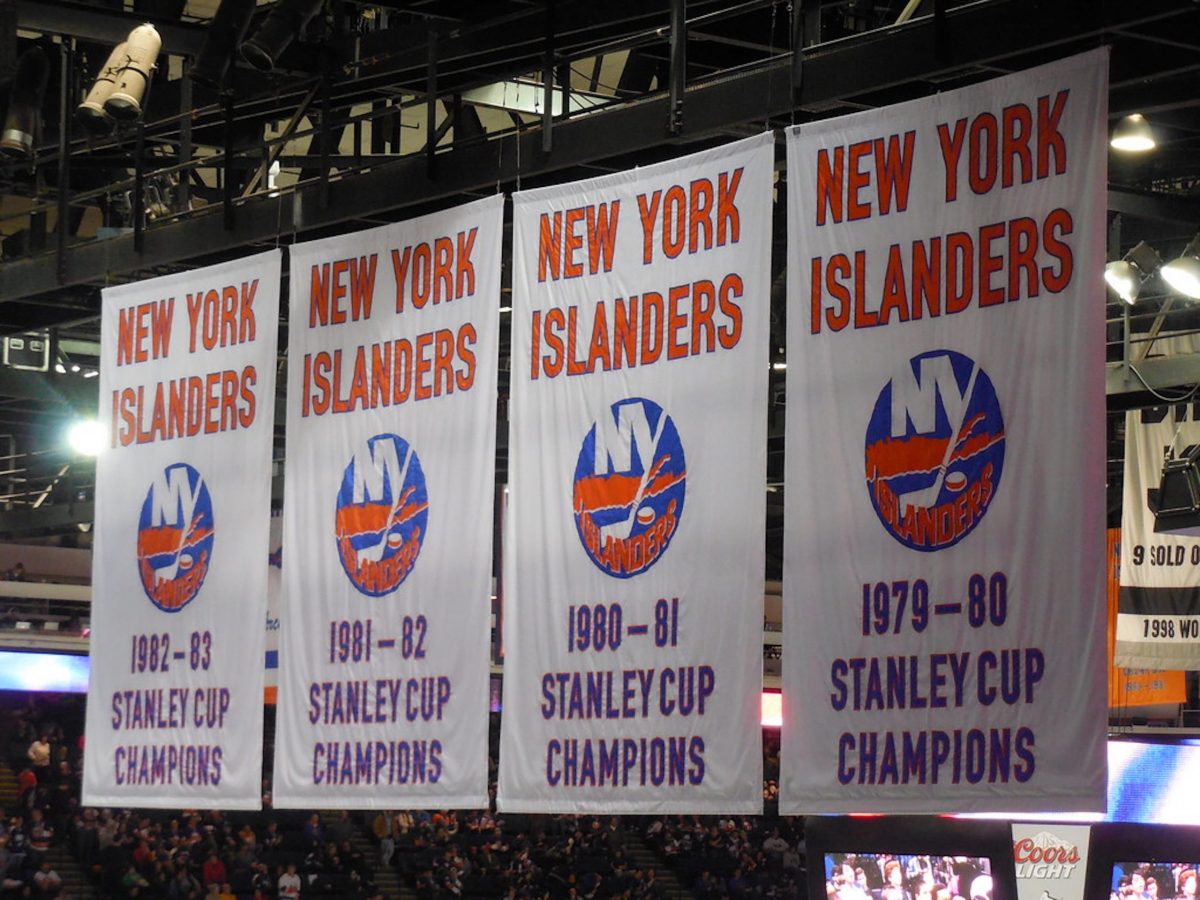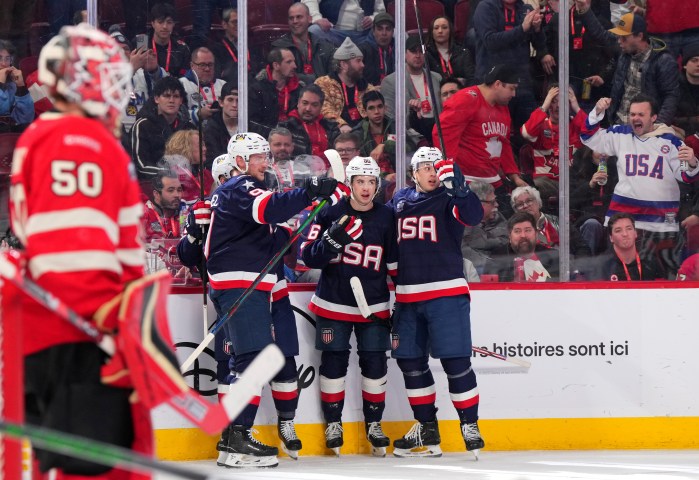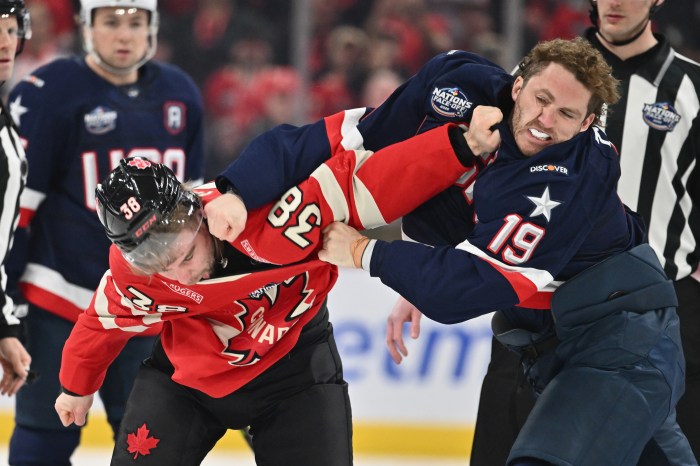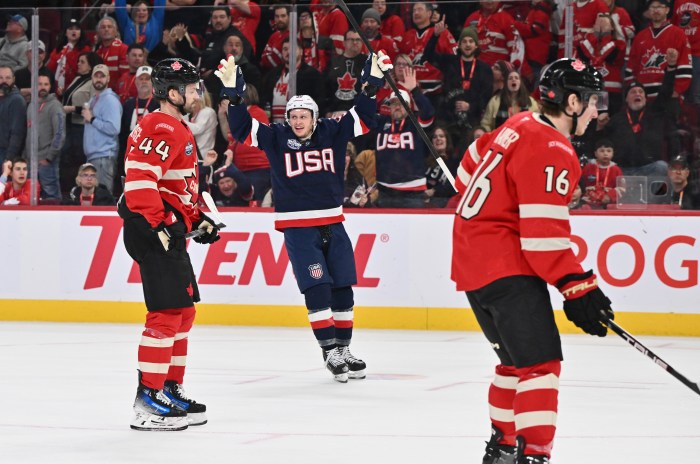‘Dynasty’ is a word that is thrown around all-too-often in North American sports when a team wins multiple championships in quick succession.
We saw the word thrown around with the New England Patriots with their six Super Bowl titles in 20 years while dominating one of the consistently weakest divisions in football.
We saw it with the San Francisco Giants winning three titles from 2010-2014.
We saw it with the Chicago Blackhawks and their three Stanley Cups from 2010-2015.
While those are dominant runs, it’s hard to call them dynasties.
Now, the New York Yankees winning four World Series titles in five years from 1996-2000? That’s pretty dynastic.
The Chicago Bulls pulling off a pair of three-peats to dominate the NBA during the 1990s? That’s a dynasty, too.
Of course, you can make a case for the Edmonton Oilers, who won five Stanley Cups in seven years, though no more than two came in succession.
But the last true North American sports dynasty belongs to a team widely viewed as an afterthought by the sports world — and even the hockey community.
Forty years ago from Sunday, the New York Islanders’ incredible run of four consecutive Stanley Cup titles began in the most dramatic of fashions, when Bobby Nystrom tipped home the series-winning goal in overtime of Game 6 of the 1980 final against the Philadelphia Flyers at Nassau Coliseum.
40 years ago today. And we still get chills. pic.twitter.com/mCRSG57tp9
— New York Islanders (@NYIslanders) May 24, 2020
One of the NHL’s most famous goals sparked a run that had never been seen by the hockey world, and one that has not been replicated since in any sport.
After downing the Flyers in 1980, the Islanders took care of the Minnesota North Stars in five games in the 1981 final before sweeping the Vancouver Canucks in 1982 and the Edmonton Oilers in 1983 for a 16-3 record in Stanley Cup Final games during that stretch.
Behind a core of Mike Bossy, Denis Potvin, Bryan Trottier, Clark Gillies, Nystrom, John Tonelli, Butch Goring, Bob Bourne, and Billy Smith, the Islanders won 16-straight playoff series during their four-year championship run and an additional three before their fifth-straight Stanley Cup appearance in 1984 when they were defeated by those same Oilers, led by some guy named Gretzky.
No North American team has won four-straight championships in their sport since and those 19-straight postseason series wins is a North American record, too.
Yet those Islanders teams are often far away from the conversation of the NHL’s greatest teams — a byproduct of being a team in the United States with such success in a sport where pearl-clutching Canadians are unrelenting in their insistence that they are the overlords of the game.
It also didn’t help that their dynasty was sandwiched in between the four-straight Cups won by the Montreal Canadiens from 1976-1979 and the Oilers’ run of five Cups in seven years — two Canadian teams.
While Montreal also won four-straight Cups, they played four fewer postseason series than the Islanders during their dynasty.
During the NHL’s 100th anniversary celebrations last year, those Islanders, Canadiens, and Oilers teams had representation on the league’s top-10 teams of all-time list.
The Canadiens had two of their four Cup-winning teams on the list.
The Oilers had four of their five Cup-winning teams on the list.
The Islanders had one, the team that swept the Oilers in the 1983 final.
That’s the kind of disrespect that has become commonplace with the Islanders organization since those glory days — a notion that new ownership, president Lou Lamoriello, and head coach Barry Trotz are trying to turn around.
For the time being, though, especially this Memorial Day weekend, the faction of Long Island and New York hockey fans will revel in the ruby anniversary of the birth of what they believe is North American sports’ last great dynasty.
“Nineteen [playoff series] wins in a row. No one says it. I never see it… But no one gives us credit. Nineteen,” Bourne told NHL.com. “That’s what I’m very proud of. No one in this world, in any sport, will ever beat 19 in a row. No one. It’s impossible. And we did it.”
And it likely will never be done, either.






































